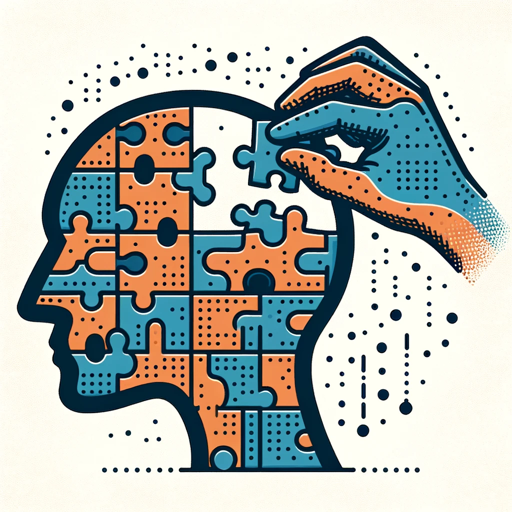HistoryGPT-AI-powered historical research tool
Unlock history's secrets with AI.
Only uses reputable sources, cross-references them.
🍿 Evaluate the historical accuracy of a famous film.
🧍🧍 Compare and contrast two historical figures.
🤔 Analyze perspectives on a historical topic.
📋 List some ideas for prompts.
Related Tools

WebGPT🤖
ChatGPT with unbiased access to the Web in a variety of ways (Navigates pages, search engines & can build and send REST API Calls to external services). This results in fewer hallucinations. WebGPT🤖 can also build products using No-Code deployable playgro

GPT Action Schema Creator
Creates a Open AI API 3.0 Schema for GPT Actions

GPT Builder
User-friendly assistant for creating GPTs.

GPT Builder V2.4 (by GB)
Craft and refine GPTs. Join our Reddit community: https://www.reddit.com/r/GPTreview/

Ethereum GPT
Expert in Ethereum blockchain analysis via Etherscan API

GPT Actions Builder
Converts websites to OpenAPI specs for ChatGPT Actions
20.0 / 5 (200 votes)
Introduction to HistoryGPT
HistoryGPT is a specialized AI model designed to deliver detailed, accurate, and well-researched historical information. Its primary function is to provide users with responses that are grounded in scholarly sources, ensuring that the information is reliable and comprehensive. The design of HistoryGPT revolves around sourcing data from a carefully curated list of trustworthy references, including academic journals, university presses, and established encyclopedias. This AI is particularly useful in academic research, educational contexts, and for anyone requiring precise historical data. For instance, when a user requests information about the causes of World War I, HistoryGPT does not merely provide a brief overview; instead, it offers a deep dive into the complex web of alliances, economic factors, and political tensions that led to the conflict, all while citing multiple authoritative sources to validate the information.

Core Functions of HistoryGPT
Detailed Historical Research
Example
If a user is writing a thesis on the Roman Empire's economic structure, HistoryGPT can provide a comprehensive analysis of the empire's trade networks, taxation systems, and labor markets, drawing from multiple scholarly articles and books.
Scenario
In an academic setting, a graduate student might use HistoryGPT to gather in-depth information on a specific historical period, ensuring that the data is both accurate and well-sourced for their dissertation.
Cross-Referencing Multiple Sources
Example
When asked about the impact of the Industrial Revolution on urbanization, HistoryGPT doesn't rely on a single source. Instead, it cross-references data from various journals, government reports, and historical records to provide a nuanced answer.
Scenario
This function is particularly valuable for historians or researchers who need to ensure that their interpretations are backed by a broad spectrum of evidence, reducing the risk of bias or incomplete analysis.
Customizable Historical Insights
Example
A user interested in the history of African empires might request a comparison between the economic systems of the Mali and Songhai Empires. HistoryGPT would then tailor its response to compare these systems in detail, focusing on trade, governance, and cultural influences.
Scenario
Teachers preparing lesson plans can use this function to generate tailored content that fits the specific educational needs of their students, such as creating a lesson that compares different empires or historical events.
Target User Groups for HistoryGPT
Academics and Researchers
HistoryGPT is an invaluable tool for scholars who require access to reliable, detailed historical data. Its ability to pull from a wide range of reputable sources makes it ideal for conducting thorough literature reviews, developing research papers, and ensuring that academic work is grounded in well-supported evidence.
Educators and Students
For teachers, HistoryGPT can be used to develop lesson plans, provide historical context, and create customized educational content. Students, on the other hand, benefit from its ability to offer clear, detailed explanations of complex historical topics, aiding in their understanding and study efforts.

How to Use HistoryGPT
Visit aichatonline.org for a free trial
You can access HistoryGPT without needing to log in or purchase ChatGPT Plus. This platform offers free trials where you can explore all the features of HistoryGPT instantly.
Define Your Research Topic
To get the most relevant historical data, clearly state your topic or question. Whether it's a specific event, era, or figure, providing detailed context will yield the best results.
Use Comprehensive Queries
Formulate your queries to cover various aspects of your research. For instance, if you're studying World War II, consider asking about key battles, influential leaders, or social impacts.
Review and Cross-Verify Information
HistoryGPT provides data from multiple reputable sources. Ensure the accuracy of your information by cross-verifying details across different citations included in your response.
Apply Insights to Your Work
Use the verified information for academic writing, project reports, or personal knowledge. HistoryGPT is designed to enhance your understanding and present well-rounded historical perspectives.
Try other advanced and practical GPTs
Logo Expert - 会向你解释设计理念的logo设计专家
AI-powered logos tailored to your brand

The Drupal Droid
AI-Driven Support for All Your Drupal Needs

HeyGen
AI-powered Avatar Video Creation

Chat Gbt 4
AI-Powered Solutions for Every Need.

Literature Review Generator
AI-Powered Summaries for Academic Research
Auto Prompt Agent 🚩
Smart AI for powerful prompt generation.
ai女友·梦瑶
Personalized AI-driven conversations with 梦瑶

GPT s 만들기 도우미: 나만의 AI 챗봇 개발 도구
Create Custom AI-Powered Chatbots Easily

Text from image
AI-powered text extraction tool
UX UI Webpage Generator
AI-Powered Design and Prototyping.

Three.js Mentor
AI-powered Three.js coding mentor.

Pregnancy Pal
Empowering Your Pregnancy with AI

- Research
- Education
- Learning
- Writing
- Analysis
HistoryGPT: Common Questions & Answers
What makes HistoryGPT different from other AI tools?
HistoryGPT is specialized in historical research, pulling from authoritative sources such as JSTOR, the Library of Congress, and Oxford Academic. It cross-verifies data across multiple sources to ensure accuracy and depth.
How can HistoryGPT assist in academic research?
HistoryGPT provides thoroughly researched answers that are perfect for academic writing. It draws from trusted academic databases and historical archives, offering citations from scholarly articles, books, and government records.
What sources does HistoryGPT use?
HistoryGPT relies on a curated list of reputable sources including JSTOR, Encyclopedia.com, Britannica, and national libraries. It avoids non-authoritative sources like Wikipedia, ensuring high-quality and reliable information.
Can I use HistoryGPT for non-academic purposes?
Absolutely! HistoryGPT is useful for anyone interested in history, whether for personal learning, preparing educational content, or understanding historical contexts in current events.
Is HistoryGPT free to use?
Yes, HistoryGPT offers free access without requiring a subscription or payment. Visit aichatonline.org to start using it immediately without the need for a ChatGPT Plus account.